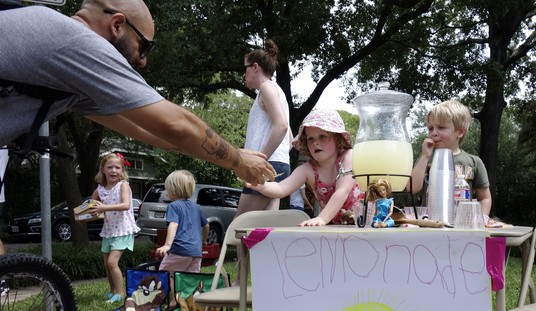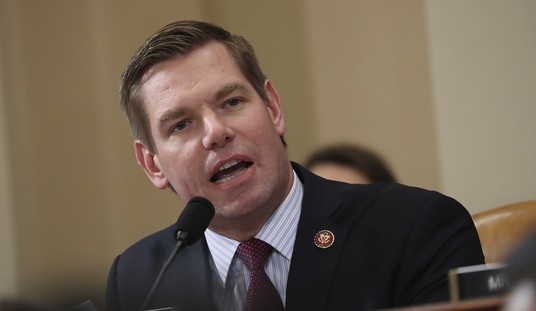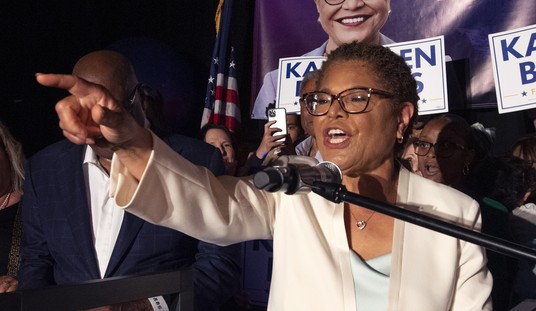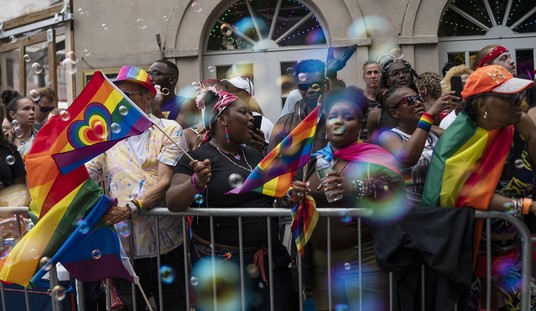
One company that does not pay heed to the outrage mob benefits as a result.
It has been a constant item in the news that the fast-food chain Chick-Fil-A is targeted as a hate-filled and intolerant business entity. Activist groups have attempted to stage boycotts on the regular, and their childish bleating has even led to politically liberal municipalities to work against allowing the company to perform basic commercial practice in their areas. It is all part of our new social reality of permissive intolerance made in the name of tolerance.
To its credit the company has been mostly muted in these social skirmishes — and also to its benefit. While the chicken purveyor has been routinely demonized in the press it has remained calmly steadfast in its mission statement, and as a result it has only grown in response. The past few years has seen the chain rise among the most successful franchises in the country, and now it has achieved a new accomplishment — Chick-Fil-A has been voted the country’s favorite fast-food restaurant.
As measured by Market Force, which conducts surveys of diners on a variety of metrics, the chicken chain came in ahead of the 2018 most-favored chain, In-And-Out Burger. This has to be a blow to the various leftist activist groups and other social cranks who have taken up the mantle in recent years of making products political, and food racist. (Judd Legum has made this his career’s sole intent.)
It is difficult to remember back to an era when our commercial buying interests were not fraught with all manner of social implication. These days we accept the infinitely fatiguing reality that we are in a state of perpetual hectoring about our marketplaces. On the one hand there is a nobility to voting with your wallet. We have that freedom in the free market, to elect which products we prefer to purchase with our private funds. But the social scolds have taken it to all new levels of outlandish outrage.
These days we are badgered as to which products support nefarious politicians, who the CEOs are who donate to improper organizations, or what brands advertise on the wrong news channel. “If you buy your son a Louisville Slugger you support those who club baby harp seals!!!” It gets so bad that you have to be aware of not only which product you buy, but that the approved item is sold by the approved store. Sure, that soda may have proceeds that go to Planned Parenthood, but if it was bought at a Wal-Mart you are still an evil conservative hate-monger!
This spending dictate recently reached an asinine level when there was a call for people to start boycotting Home Depot because one of its founders donates to Donald Trump. The claim was buying a hammer puts money in Trump’s pocket, so we should shop at Lowes instead. Three problems with this effort:
1) The founder had retired from Home Depot over 15 years ago.
2) Another founder was a frequent donor to the Democrats
3) Lowes is a primary donor to GOP candidates.
While Chick-Fil-A has been featured frequently in news cycles it differs from many other companies that have been connected to social activist prolix. Unlike examples such as Target Stores (gendered bathrooms), Dick’s Sporting Goods (gun control), or Gillette Razors (toxic males), the chicken chain has not inserted itself into the social discourse; it has always been dragged into the debate. Each of those above companies boldly made an announced virtue stance, and each ended up suffering commercially as a result.
Meanwhile Chick-Fil-A quietly conducted its business, and look at the rewards it is reaping. Market data shows that the chain is taking in more than double the revenue than McDonald’s restaurants — and that is while famously operating with one fewer business day per week. (Some estimates have shown that by closing on Sundays the company is losing out on roughly $1 billion in additional sales annually.)
It seems the outrage culture that draws so much attention actually carries little influence. Not only do their calls for incensed boycotts mostly fail to have an impact, but companies which cater to the crank-set also suffer. Turns out the blowhards do not easily part with cash. Soon enough the corporate suits may start to realize the impotence these activists actually possess.














Join the conversation as a VIP Member